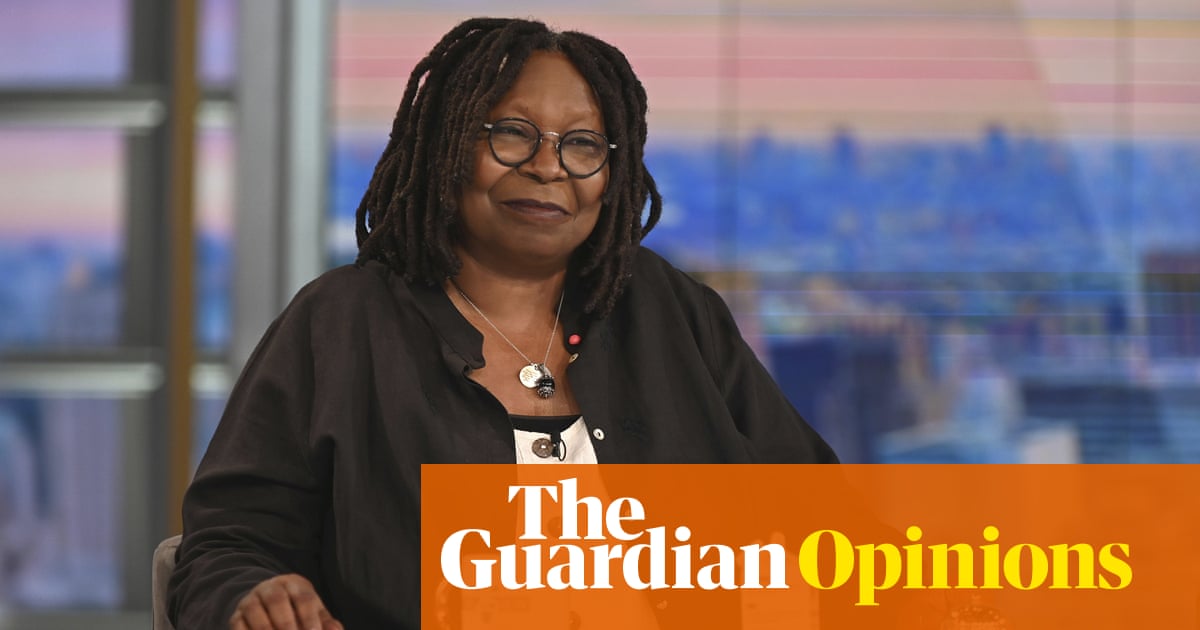
Show caption Whoopi Goldberg on The View. Goldberg has been suspended for two weeks. Photograph: Jenny Anderson/AP Opinion It’s not just Whoopi Goldberg: Americans are deeply misinformed about the Holocaust Cas Mudde While Whoopi Goldberg’s ignorance of the Holocaust is painful, it is far from striking. Many Americans don’t know what it is @casmudde Wed 2 Feb 2022 18.24 GMT Share on Facebook
Share on Twitter
Share via Email
On Tuesday, Whoopi Goldberg was suspended from The View for stating, with striking confidence, that the Holocaust was “not about race”. She made the statement just days after National Holocaust Remembrance Day, when celebrities and politicians around the world had remembered the darkest period in world history, the racist genocide of 6 million Jews, roughly two-thirds of European Jewry, by Nazi Germany. Most emphasized the importance of remembering this horrific part of history to ensure “never again”. Goldberg’s comments were also made a week after a Tennessee school board banned the Pulitzer-winning Holocaust graphic novel Maus from schools.
While Goldberg’s ignorance of the Holocaust is painful, it is far from striking. Many Americans cannot even remember the Holocaust, because they don’t know what it is. For instance, a 2018 poll by the Pew Research Center found that just 62% of Americans know that the Holocaust refers to the extermination of Jews. Almost half (49%) know that 6 million Jews were killed. Although these numbers are up from 1993, where they were 54% and 35%, other polls confirm that knowledge remains limited at best.
The 2020 Pew edition of “What Do Americans Know About the Holocaust?” finds that “most US adults know what the Holocaust was, and approximately when it happened, but fewer than half can correctly answer multiple-choice questions about the number of Jews who were murdered, or the way Adolf Hitler came to power”. There is little difference in terms of age, gender, partisanship or region, but “race” differences are quite big, with black people having on average 1.2 of the four questions correct, Hispanics 1.7, and white people 2.5. Obviously, this is strongly related to level of education, another important variable to explain differences – as is whether you know someone who is Jewish.
Previous studies have reported equally disturbing findings, including a bigger gap between the (lack of) knowledge of older and younger Americans. For instance, a 2018 poll by Schoen Consulting found that 31% of Americans thought 2 million or fewer Jews died in the Holocaust, while the percentage was 41 among millennials. It also reported that 41% of Americans did not know that Auschwitz was a Nazi extermination camp, and just one-third of millennials did know.
This shocking lack of knowledge is not without consequences. You can’t learn lessons from the past without knowledge of the past. Even if people know roughly what the Holocaust means, if they don’t know roughly what happened and why it happened, “never again” might become wishful thinking. In fact, 58% of Americans think “something like the Holocaust could happen again”.
With antisemitism on the rise, in terms of verbal and physical violence, knowledge becomes even more crucial. Pew found that people with more knowledge about the Holocaust have “warmer feelings” towards Jewish people. This will hopefully help inoculate them against the antisemitism they encounter in the public debate, from such diverse voices as Nation of Islam leader Louis Farrakhan, to some of the critique of Israel, to, most problematically, the far right, including the former president.
Interestingly, Americans agree wholeheartedly. A staggering 93% of Americans believe that “all Americans should learn about the Holocaust while at school”, and 80% say it is important to keep teaching about the Holocaust so it doesn’t happen again. A rare bipartisan consensus, which should make the implementation easier.
There is already a wealth of excellent Holocaust educational material available from organizations like the Anti-Defamation League, the International Holocaust Remembrance Alliance, the United Nations and the United States Holocaust Memorial Museum. While most of these materials are aimed at the teachers, a new graphic adaptation of Anne Frank’s diary might be a particularly good tool to reach children from Generation Z (as well as millennials).
Anne Frank’s Diary: the Graphic Adaptation is a beautifully illustrated graphic novel that conveys the key messages of the seminal text. While there are some problems with the depth and scope of the story, as well as with the representation of the writer Anne Frank, it might do a better job than the original in reaching generations that are more visually oriented.
Whatever the book or movie chosen, it is crucial that the Holocaust is taught again at US schools. And not just the bare facts, but the process that led to this horrific event. While I disagree with the popular – and profitable – warnings of a new fascism, there is no doubt that antisemitism and the far right are challenging US democracy in an increasingly violent manner. If we don’t educate our young and our old, history might indeed repeat itself and “never again” will prove little more than wishful thinking.
Cas Mudde is a Guardian US columnist and the Stanley Wade Shelton UGAF professor in the school of public and international affairs at the University of Georgia







